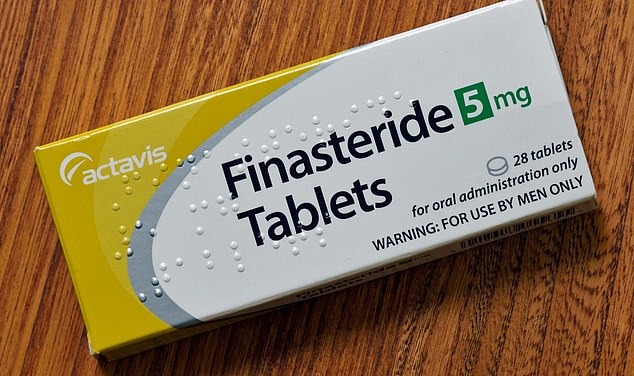I am still experiencing an alarming issue where a wavy zigzag line appears before my eyes obscuring my vision. While I don’t get a headache when it occurs, I’m wondering if this could be some type of migraine.
Dr. Ellie answers: Strange lines within your field of vision along with a change in vision absolutely warrant a check-up with an optician.
They will be able to examine the retina (the back of the eye), as well as the blood vessels and optic nerve, which could be related to this problem. They will also check for glaucoma, where the optic nerve has been damaged by a buildup of fluid.
It’s true that strange visual effects could be part of a migraine condition. There is a very specific (and rare) type called retinal migraine. This may only affect the eyes and not cause a headache. It is believed to be related to the narrowing of blood vessels in the eye.
A retinal migraine appears suddenly and may cause vision loss for up to an hour, or may cause vision loss.
Other symptoms may include blurred vision and seeing flashing lights, wavy lines, or even colored spots.
However, it is important not to self-diagnose: a thorough examination is necessary.
As with all migraines, there may be certain triggers for each individual, such as stress, caffeine, and dehydration. It may be worse for people with high blood pressure, so it is worth having your blood pressure checked at a pharmacy.
A GP can prescribe migraine medication, but it is reasonable to use paracetamol or ibuprofen if they work.
I recently started having strange sinus problems, along with tingling in my face. My ears pop as if I were on a plane, which makes me dizzy and my vision is affected. Could this be related to my underactive thyroid medication, thyroxine, which I take every day?
Dr. Ellie answers: This is not the first time I have been asked about thyroxine and sinus problems, and yet these problems are not listed as an official side effect of the medication.
We know that people with thyroid conditions can experience sinus problems, hearing problems, and nasal congestion. However, this would be more likely if the condition was not well controlled.
There are also other reasons why you might be experiencing sinus problems. Sleeping can put pressure on the sinuses, which is why many people experience nasal congestion in the morning.
Going from lying down to standing, as we do in the morning, causes fluid to move inside the ears and sinuses, and can cause mild swelling. It also happens that most people who take thyroxine take the tablet in the morning, which could explain why people associate it with sinus problems.
It might be worth changing when you take the medication, just on a trial basis, to see if the timing of your symptoms changes as well.
Any symptoms you believe are directly related to a medicine you take should be reported to the medical safety regulator, the Medicines and Healthcare products Regulatory Agency. The agency runs a Yellow Card scheme where side effects can be recorded. You can do this online or by asking a GP or pharmacist.
My wife had a shunt placed to drain fluid from her brain. Since then she has suffered from severe stomach bloating that continues to get worse. Do you think this could be caused by the shunt?
Dr. Ellie answers: Although rare, it is possible for this type of procedure to cause a buildup of fluid in the abdomen.
A shunt (a thin tube surgically inserted into the body) is often used to treat a condition called hydrocephalus, which is caused by excessive fluid buildup in the brain. This fluid increases pressure inside the skull and can cause complications, such as speech and vision problems, which is why it is so important to treat it.
The shunts take fluid from the brain and pass it to the abdomen. The fluid is usually reabsorbed into the bloodstream and should not cause any problems.
However, in some cases the shunt can drain too much fluid, causing an uncomfortable buildup in the stomach.
The shunts can also become infected, causing abdominal pain.
Considering how recently your wife had the shunt placed, it would make sense that it would be a possible cause of the problem. He would contact me with the surgical team that performed the procedure, who will be able to review it.
It is important to always have persistent swelling checked by a doctor because, in rare cases, it can be a sign of ovarian cancer. However, most of the time, bloating is related to irritable bowel syndrome and can be treated with a daily probiotic or peppermint oil.
We will pay the price of prescription fees
Prescription drug rates increased last week – 25p. It now costs £9.90 per prescription, which isn’t much when you think about the cost of many medications, but I don’t think people should be charged anything.
Certain groups (under 16s, over 60s, diabetics and pregnant women, to name a few) do not have to pay. Others, like women taking HRT, get a big discount. However, I have long felt that this list was unfair. Asthmatics, for example, have to pay for each prescription.
The money generated by prescription charges amounts to approximately £600 million a year. But this is trivial compared to the £19.2bn annual NHS bill for medicines.
Meanwhile, some of the poorest in society end up going without medication due to costs, get sicker and end up in hospital, which costs much more in the long run. If all medications were free, it would eliminate at least part of this problem.
Let me know what you think about this idea.
Some of the poorest in society end up without medication due to costs, get sicker and end up in hospital, which costs much more in the long run.
The dark side of anti-hair loss medications
The anti-hair loss drug finasteride can trigger libido problems, erectile dysfunction and even depression, UK health officials warned last week.
The medication, which comes in tablet and lotion form, restricts the amount of testosterone the body processes to slow weight loss.
We also prescribe it to men with prostate problems, but in much higher doses.
Finasteride is not offered for hair loss on the NHS, but is sold by several online companies who package the drug as something more like a beauty product than a hormone-disrupting drug.

The medication, which comes in tablet and lotion form, restricts the amount of testosterone the body processes to slow weight loss.
All medications have possible side effects and this is no different. It is important to know that the chances of these finasteride side effects occurring to you are very low. But the risk is there, so it’s important for patients to consider it carefully before starting treatment.
If you start to experience unexpected physical or mental symptoms while taking it, tell your GP immediately.


